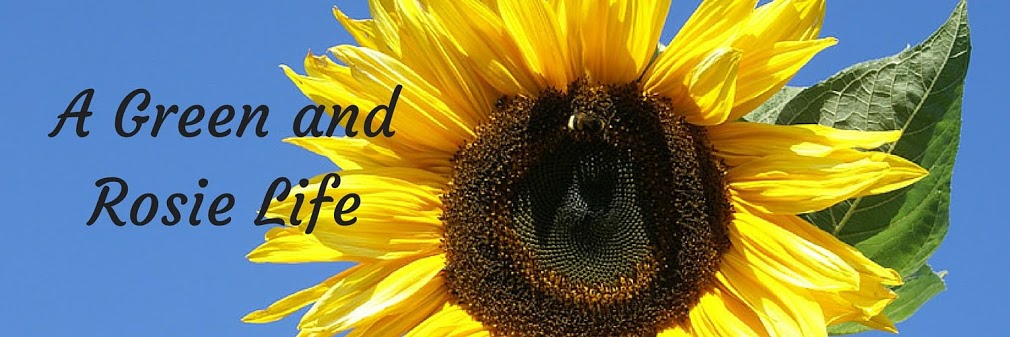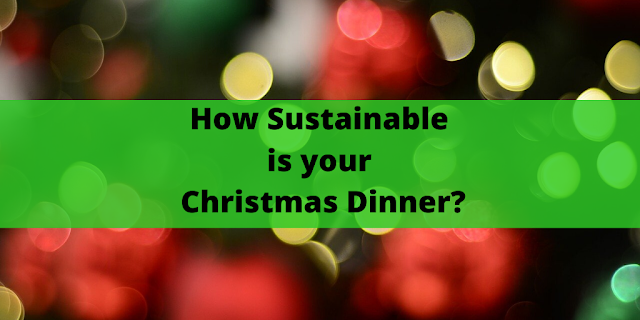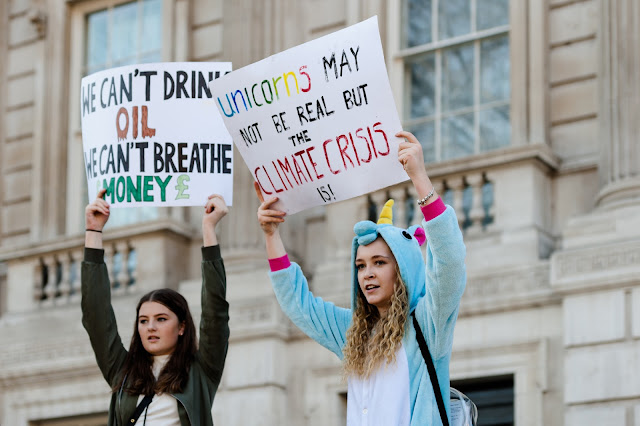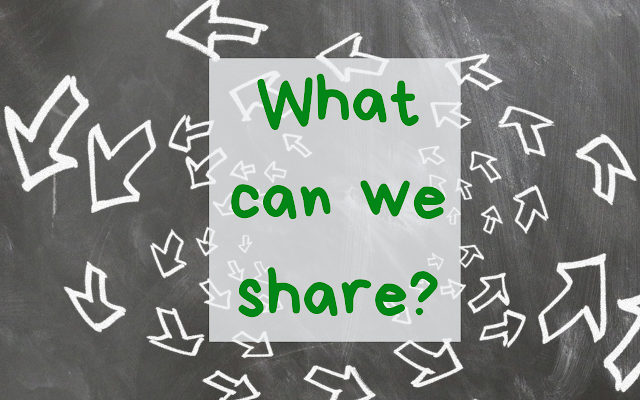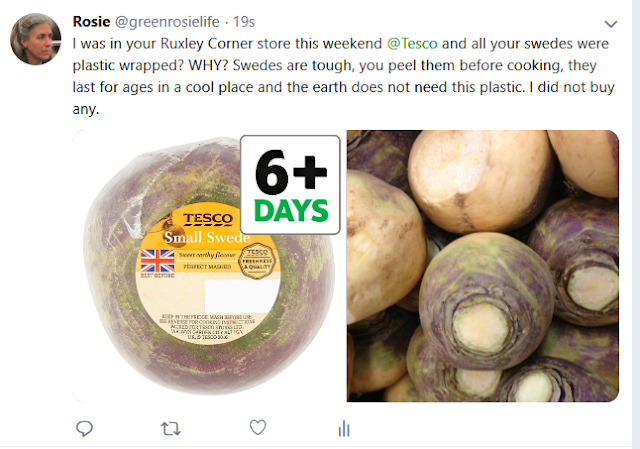Being unwell is horrible for you and also horrible for the environment. Health Services are one of the most wasteful sectors of society with many items made from single use plastic wrapped in plastic and most of this is not recycled. Gowns, masks, gloves etc are often thrown away after one use. Medicines, operations and care in hospitals or at home are all heavy on resources and every bottle of children's medicine you ever buy comes with a spoon/syringe. Whilst no-one can predict unforeseen illnesses and injuries there are many ways we can keep ourselves healthy and reduce the negative environmental impact from time spent under the care of your health service. Why not make your New Year Resolutions to be more healthy not just for you ... but for the planet as well.
How to keep yourself and the planet healthy:
Don't overeat
Being overweight increases your risk of being ill. In many cases heart disease, Type 2 diabetes, high blood pressure, gout and sleep apnoea can be attributed to excess weight - furthermore overweight people put extra pressure on their joints etc leading to a higher risk of joint damage and other injuries. You read more about this subject in this blog post I wrote:
Overeating, food waste, obesity and climate change.
Eat healthily and avoid over-processed food
It is now realised that eating well is more than just eating the right amount of calories, you also need to be heating healthy calories. So plenty of fresh produce (especially local and in season food) and less empty calories from biscuits and fizzy drinks etc. Often processed food is high in salt, fat and sugar none of which are healthy in high amounts. Replacements for these products are also not good for your health including sugar substitutes, unnatural flavourings and flavour enhancers.
Keep up the exercise
You don't have to join a gym or take up a sport and there are so many small lifestyle changes you can implement to increase how much exercise you take. Park a street or two away and walk the last bit of your journey, walk the kids to school, walk the dog a bit further (or offer to walk the dog of an elderly or unwell friend/neighbour), take the stairs, run upstairs, spend 5 mins doing yoga stretches every day. This list goes on! And get outside in the fresh air every day, what-ever the weather.
When ill keep away from others
If you are ill stay off work and keep out of crowded places and keep unwell children at home. Especially in warm heated buildings you are going to spread your germs and without rest you will lengthen how long you (or your child) is ill.
Use natural remedies
For minor illnesses and injuries consider natural remedies - for example rosehip syrup, elderberry port and honey and lemon are great for colds and coughs.
Let minor illnesses such as colds take their course
Colds cannot be cured by antibiotics so unless the patient has underlying health issues such as asthma or is very young or elderly colds should just be allowed to run their course - take natural remedies to ease the symptoms and keep away from other people.
Avoid antibiotics
Overuse of these winder medicines is resulting in bacteria becoming resistant to them and so there is a risk of us returning to a time when illnesses and even minor injuries can become life threatening as bacteria cannot be treated. This places a massive burden on health services and it is why we are seeing a rise in cases of MRSA also known as Methicillin-resistant
Staphylococcus aureus - the bacteria is resistant to many of our antibiotics and no new antibiotics have been found recently. The same goes for
antibacterial cleaners - do not over-use them.
Avoid toxic products
For example over use of cleaning products can lead to asthma and so many toxic products risk making us ill. Avoid chemicals where-ever you can. Keep you house fresh by opening the windows and use house plants to help cleanse the air.
Give up smoking
Just that - it's bad for your health and for those around you. Just do it.
Avoid flying
We all know flying is bad for the environment but there is more than just the direct impact of the flight. First off you are stuck in a closed shell and at risk of picking up illnesses from fellow passengers. Secondly long haul flights increase your risk of getting life threatening deep vein thrombosis.
These are my Top 10 Tips - do you have any more to add so we can all stay as healthy as possible?
Other posts you might enjoy:

